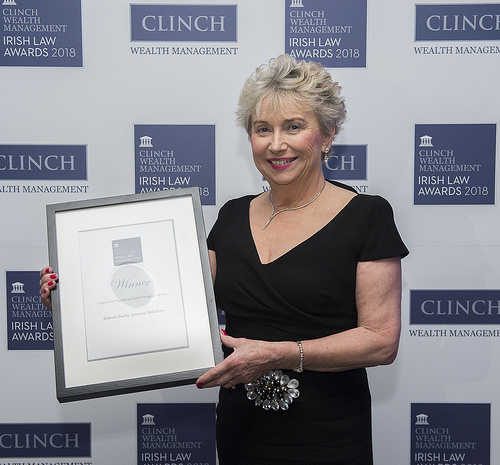Residential Zoned Land Tax - What You Need to Know Residential Zoned Land Tax (“RZLT”) was introduced by way of the Finance Act 2021 and will be payable from 2024. The RZLT is an annual tax calculated at 3% of the...
Rights of Cohabitant Living With a Separated Married Person
Child Maintenance
It has been the case in Ireland for many years [i] that a court has the power to order maintenance payments against one parent in favour of another in respect of a non-marital child even though one parent might be married to a third party. It is possible for child maintenance proceedings to issue against a married cohabitant whilst judicial separation or divorce proceedings are pending against him/ her. Maintenance payments for non-marital children should be paid equally in priority to maintenance for marital children[ii].
A claim for maintenance in respect of a dependent non-marital child is claimed under the Family Law (Maintenance of Spouses and Children) Act 1976 (as amended).
Maintenance, Lump Sum Payments, Pension Adjustment Orders in favour of Qualified Cohabitant
The Civil Partnership and Certain Rights and Obligations of Cohabitants Act 2010 (the “2010 Act”) confers additional rights of redress on a ‘qualified cohabitant’ who is economically or ‘financially dependent’ on the other ‘by reason of the break-down of the relationship’ [iii] and it is ‘just and equitable’ for a Court to grant the specific relief sought under that Act in the circumstances. It is important to note that rights under the 2010 Act only arise on the break down of the relationship.
The 2010 Act renders it possible for a qualified cohabitant to secure orders – including property adjustment, Compensatory Maintenance Payments[iv] (or maintenance orders as referred to above) and pension adjustment orders[v]. – in his/her own favour personally, and not just in respect of maintaining a child of the relationship in question which is a novel step.
In circumstances where one or both parties are married, neither party will be deemed a qualified cohabitant until the cohabitant who is married, has been living separately and apart from his/her spouse for periods amounting to 4 years out of the 5 years prior [vi] to the date the cohabiting relationship ends. In essence, neither party will be deemed a qualified cohabitant until the married party is entitled to seek a divorce.
A qualified cohabitant under the 2010 Act is someone who has been living with another in an intimate and committed relationship for 5 years or 2 years where they are parents of one or more dependent children.
It should be mentioned that the above reliefs under the 2010 Act apply subject to any Cohabitants’ Agreement contracting out of the said Act’s provisions. A Cohabitants’ Agreement which has been entered into by the parties under section 202 of the 2010 Act will be enforced by a court save in exceptional circumstances where to do so would result in serious injustice.
Succession Rights
A qualified cohabitant also has a right to apply for provision from the net estate of a deceased qualified cohabitant under section 194 of the 2010 Act. In this respect, where the ending of the relationship is as the result of the death of the qualified cohabitant, the surviving cohabiting partner does not need to prove financial or economic dependence on the deceased in order to substantiate a claim to his/her estate under this section. However, the right of the qualified cohabitant under this section cannot exceed that which s/he would have been entitled to if the parties were married. In general terms, this could mean that the cohabitant would not be entitled to anything more than his/her ‘legal right share’ as defined in section 111 of the Succession Act 1965 (1/3 of the net estate if the Deceased had children living at the date of his/her death or 1/2 if s/he did not).
In addition, the right to be provided for out of a deceased cohabitant’s estate is strictly subject to a surviving spouse’s succession rights under the Succession Act 1965 which in small estates, could render any such right in favour of a qualified cohabitant valueless in practical terms. A surviving spouse could be first entitled to a legal right share (if the parties are not yet divorced) out of the net estate or could have a general right for proper provision to be made for him/ her under section 18 of the Family Law (Divorce) Act 1996 (the “1996 Divorce Act”). In addition, it is noteworthy that a court is required to consider the rights of other beneficiaries and the rights of a dependent child/ children prior to making an order under section 194.
An application for provision out of the deceased’s estate must be made within six months of the date of a grant of representation in the estate. There is a positive duty on the applicant/ claiming cohabitant to notify the personal representative of the proceedings and failure to do so could mean that the deceased’s assets would be distributed without any further recourse.
If the relationship ended prior to the qualified cohabitant’s death other factors apply in particular the surviving cohabitant will be required to prove financial dependence.
It is possible for both cohabitants to renounce/ waive their entitlements under the 2010 Act by entering into a Cohabitants’ Agreement. Such an agreement would be enforced by the courts except in exceptional circumstances where doing so would cause a serious injustice[vii].
Property Rights – Property Law
Separately it is worth noting that in addition to rights under the 2010 Act, parties living together may be in a position to obtain relief under the Land and Conveyancing Law Reform Act 2009 (the “2009 Conveyancing Act”) for an order of partition (separation of each party’s interests in the property) and sale of property co-owned by them, either legally or beneficially under section 31 of that Act.
The application of property law in relation to co-owned properties can be very complicated where the parties are not in agreement in relation to their respective interests and the values of the same. For example, one party whilst not named on the title deeds may have contributed towards a mortgage on the property in which case s/he will have a beneficial interest in that property as a result. Disagreements also frequently arise in determining the exact value of alleged indirect financial contributions made by one party to the repayment of the mortgage.
Reliefs under the 2009 Conveyancing Act can be available in tandem with rights under the 2010 Act – ie in circumstances where the parties were living together and are deemed ‘qualified cohabitants’ under the 2010 Act (as above). Due to the wide reliefs available under the 2010 Act and the fact that proceedings, if issued are heard ‘in camera’ or in private in a family law court under that act, it is generally advisable for proceedings to issue under the 2010 Act where possible. Proceedings under the 2009 Conveyancing Act would be considered a ‘civil’ matter heard in public.
Where the application of the rules in the 2009 Conveyancing Act would cause an injustice when applied to what is in essence a family law dispute, in certain limited situations outside the scope of this article, equitable doctrines could apply to ease a strict application of those rules – such as placing a ‘stay’ or a hold on an order for sale of a property until the dependent child reaches 18 or 23 and in receipt of full-time education.
Summary
In summary, the law affords rights to cohabiting couples in certain situations, even though one or both of them may be married. Cohabiting couples do not have the same rights as married couples and their rights on succession are second in priority to the right of a surviving spouse and regard must be had to other beneficiaries, if a court is required to assess a claim under the 2010 Act. It is therefore important for a cohabiting couple comprising one or both individuals who are married to third parties to ensure each of them is aware of their rights and have made appropriate arrangements by a Will or otherwise in the event one pre-deceased the other.
For further information and advice in relation to “Rights of Cohabitant Living With a Separated Married Person”, please contact Deirdre Farrell, partner, Amorys Solicitors deirdre@amoryssolicitors.com, telephone 01 213 5940 or your usual contact at Amorys.
[i] Since the introduction of the Status of Children Act 1987[ii] S. 3 of the Status of Children Act 1987 which in effect states that the marital status of a child’s parents is to have no effect on the child’s relationship with them is support for this statement.
[iii] See Section 173 of the 2010 Act
[iv] Section 175 of the 2010 Act
[v] Section 187 of the 2010 Act
[vi] This time period will change when a commencement order has been made in respect of section 4 of the Family Law (Divorce) Act 2019
[vii] Section 202 (4) of the 2010 Act

 ENG
ENG PL
PL



